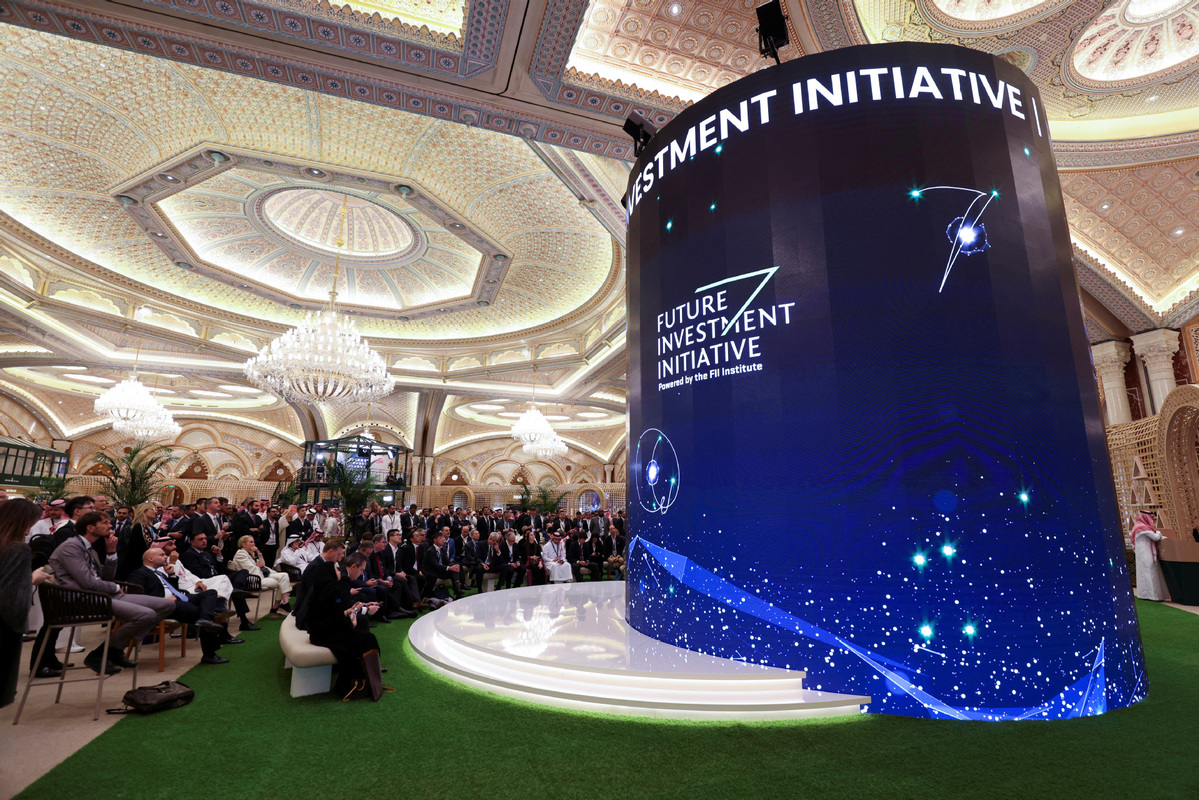Saudi growth strategy 'a boon for the Middle East'
By JAN YUMUL in Hong Kong | China Daily | Updated: 2022-10-26 09:49

With Saudi Arabia poised to grow at its fastest pace in a decade, the nation's economic gains and diversification plans bode well for its neighbors, analysts say.
Clemens Chay, a research fellow at the National University of Singapore's Middle East Institute, said that Saudi Arabia has made considerable efforts since last year's Al-Ula summit to realign the regional countries' respective economic visions. As a result, the entire Gulf Cooperation Council could benefit from the gains.
On Oct 18, Saudi Arabia's Crown Prince Mohammed bin Salman Al Saud announced the National Industry Strategy with a goal to transform the kingdom into a leading industrial power. The strategy covers 12 subsectors, with more than 800 investment opportunities worth 1 trillion Saudi riyals ($226 billion).
The crown prince highlighted the country's potential to reach a competitive and sustainable industrial economy, including its youth, geographic location, natural resources, and national pioneer companies.
On Sunday, he introduced the Global Supply Chain Resilience Initiative, which aims to transform the Arab nation into a preferred location for leading global industrial companies.
Saudi Arabia's trade with Gulf Cooperation Council states increased by 11 percent, or $4.84 billion, year-on-year in the first half of 2022, according to equity market news platform Mubasher.
"As part of this approach that prioritizes regional stability, Saudi Arabia now has a bilateral coordination council with each of its neighbors. The latest inceptions include those with Qatar, Oman and Kuwait, all established in 2021," said Chay.
"As for Saudi-Emirati cooperation, we are witnessing an acceleration in bilateral engagement as the executive committees from both sides have met on a few occasions recently to tie down financial and investment goals; that is, following the council's inauguration in 2018," he said.
The International Monetary Fund reported in August that Saudi Arabia is likely to be one of the world's fastest-growing economies in 2022, with GDP expected to grow by 7.6 percent, the fastest in almost a decade.
According to Saudi Arabia's General Authority for Statistics, the nonoil sector expanded by 8.2 percent in the second quarter of this year, exceeding the agency's initial estimate of 5.4 percent.
Arhama Siddiqa, a Middle East expert and research fellow at the Institute of Strategic Studies Islamabad in Pakistan, said that with economic downturn "sweeping all corners of the globe", Saudi Arabia's announcements and actions show a country with geoeconomics as its centerpiece and with a little over seven years left to complete its Vision 2030.
Saudi Vision 2030, a framework launched in 2016, aims to reduce the nation's dependence on oil.
'Davos in the desert'
"Hundreds of CEOs and finance gurus will be congregating in Riyadh this week for 'Davos in the desert', which itself is evidence of the kingdom's growing clout," said Siddiqa. She was referring to the sixth edition of the Future Investment Initiative, from Tuesday to Thursday in Riyadh.
"Saudi Arabia is one of the most pivotal Middle Eastern countries that will signal a global change in the international system," Furkan Halit Yolcu, a research assistant at the Sakarya University Middle East Institute in Turkiye, told China Daily.
"Leaning on the lessons taken from the prolonged tango with the United States, Saudi elites now want to rely on themselves," said Yolcu.
In October, Saudi Arabia and other oil producers, collectively known as the Organization of the Petroleum Exporting Countries, or OPEC, agreed to cuts of 2 million barrels per day, earning the ire of the US. Saudi Arabia, with the backing of its OPEC peers, staunchly objected, saying the decision was purely economic.
Anis Khayati, an economics professor at the University of Bahrain's College of Business Administration, said Saudi Arabia may achieve gains by repositioning itself regionally and internationally.
Xinhua contributed to this story.
























